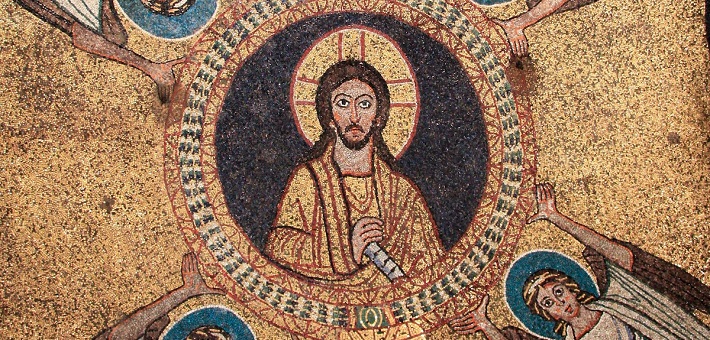Commentary on John 18:33-37
What kind of king was Jesus?
Some commentators have opined that the writer of John presents Jesus as one who ultimately exercises authority. I have a different view of this passage as I simply see Jesus responding to a person with societal power, from the perspective of the underside of history, which has a very different set of values than that of the dominant society.
Perhaps the view that Jesus is the one who exercises ultimate authority is a view that emanates from this worldly kingdom in which we live, a society in which success is associated with “winning” at all costs. Despite that it is widely embraced, this perspective has proven to fail in every sector of society.
Even when considering “military might,” we can see that despite all the military power held by the U.S., this country has not been able to secure most of its political objectives, as has been demonstrated in the recent example of the withdrawal of armed forces from Afghanistan.
This passage, in which Jesus speaks to power, shows how the powerful do not like it when they do not control the discourse. The powerful elites of Jesus’ day were accustomed to controlling the ideology and the discourse, just as the powerful elites are accustomed to determining/controlling the ideology and the discourse in our day. Does Jesus respond to Pilate with “authority” or does he just respond with honesty based on his experience as a marginalized individual? Why would Pilate ask Jesus a question he already knew the answer to?
Jesus posed the questions: Are you asking me sincerely or are you prejudiced because of what people have told you? Did you already make up your mind? In other words, Jesus called out Pilate for his feigned neutrality in their conversation. Pilate’s question is one that he was asking for others—a question that was full of biases.
A modern-day example would be one where police officers ask a group of young black and brown men on a street corner, “What are you doing?” That question is neither neutral nor innocent. The racist ideas about black and brown people come into play. When Jesus questions Pilate’s motive for asking him if he was king, Pilate said, “I am not a Jew, am I?” This is akin to the police who question young men of color and then defend their questions, saying, “I am not a racist!”
Pilate wants to act as though he is innocent of his prejudiced notions about Jesus, while playing along with the lies and corruption of his constituents. Jesus does not fall for that; he instead unmasks the demonic forces of his society that engage in such egregious abuse of power.
Jesus tells Pilate, “My kingdom is not of this world!” Many have interpreted this to mean that Jesus’ kingdom is somewhere in heaven and not relevant to this world. To me, Jesus is saying that the values of his kingdom are different from those of the current system. In other words, Jesus does not have to exercise the type of authority that seeks to be on top, which results in oppression, corruption of the judicial system, and precisely the kind of hypocrisy that Pilate exhibited in the interaction between him and Jesus. Jesus tells him: “If my kingdom were from this world, my followers would be fighting to keep me from being handed over. But as it is, my kingdom is not from here.”
The values of Jesus’ kingdom are so vastly different from those of this world that often we Christians fail to understand them. The church, which purports to—and should—represent Jesus’ kingdom, is here to serve in humility rather than to seek earthly power. Jesus is the king,1 yet he does not arrive in a chariot, but on a donkey! Jesus is a king who is killed by those with societal power, not a king who is victorious over his enemies by defeating them in war.
However, in allowing himself to be killed and physically defeated for the sake of truth, he engages in the ultimate demonstration of the power of love. This gospel lesson that leads us toward the cross should remind us that, in the words of Jürgen Moltmann, our Christian faith has a God that was crucified.2
Let us take this opportunity to remind ourselves and our congregations that we serve a king like no other—a king who is not seeking power and glory, but humble service to others. Consequently, we who identify as the Church should seek to engage in humble service to others. Everyone interested in seeking the truth will embrace the values of this other kingdom, which contrasts sharply with a society that attempts to win at all costs. Those who seek power and prestige at the expense of others will reject the true kingdom represented by Jesus.
Christ the King Sunday offers an opportunity for the church to assess its values and evaluate how it operates in our society. This can lead to a clarification of mission and point us in the direction Jesus intends for us, so that we may truly be the real church that our world so desperately needs.
Notes
- For sake of brevity I use the term “king,” which connotes ideas very contrary to what Jesus represented.
- Jürgen Moltmann, The Crucified God: 40th Anniversary Edition (Fortress Press, 2015).


November 21, 2021